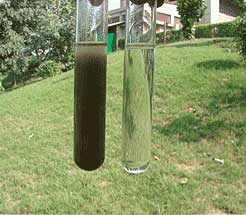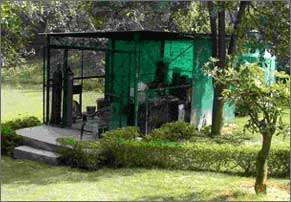In India, it is estimated that nearly 66% of the sewage generated in cities remains untreated. Inadequate treatment of wastewater contaminates fresh water sources causing environmental pollution and making them unsafe for human use. One of the main reasons for untreated wastewater is the disperse generation and high infrastructure cost involved in centralized treatment systems. Thus, there is a growing interest in advanced decentralized treatment systems that can provide treated water of good enough quality making on-site reuse possible. Innovation in advanced wastewater treatment
Innovation in advanced wastewater treatment

Membrane bioreactors (MBRs) integrating biological treatment with membrane filtration is an advanced treatment technology that is compact and can provide treated water of high quality. However, commercially available membranes are expensive and thus not cost-effective in emerging economies such as India.
To tackle the problem of high- membrane cost, TERI has developed ceramic membranes from waste fly-ash obtained by combustion of agricultural residues. The membranes have a pore size of 1-10 µm and have been tested in submerged MBRs for both sewage and industrial (distillery) wastewater treatment. A pilot demonstration was conducted using raw sewage generated at TERI's residential complex at Gual Pahari, Haryana. The MBR was successfully operated for over 300 days.
Beneficiaries
Communities, municipalities
Applications/benefits
- Advanced wastewater treatment at affordable cost
- Superior quality of treated effluent enables on-site reuse
- High microorganism concentration allows treatment of high-strength wastewater
- TERI is in the process of improving the system operation to ensure reliability and also establish the economic implications of the process. This will lay the foundation for scale-up and subsequent commercial plant design.

